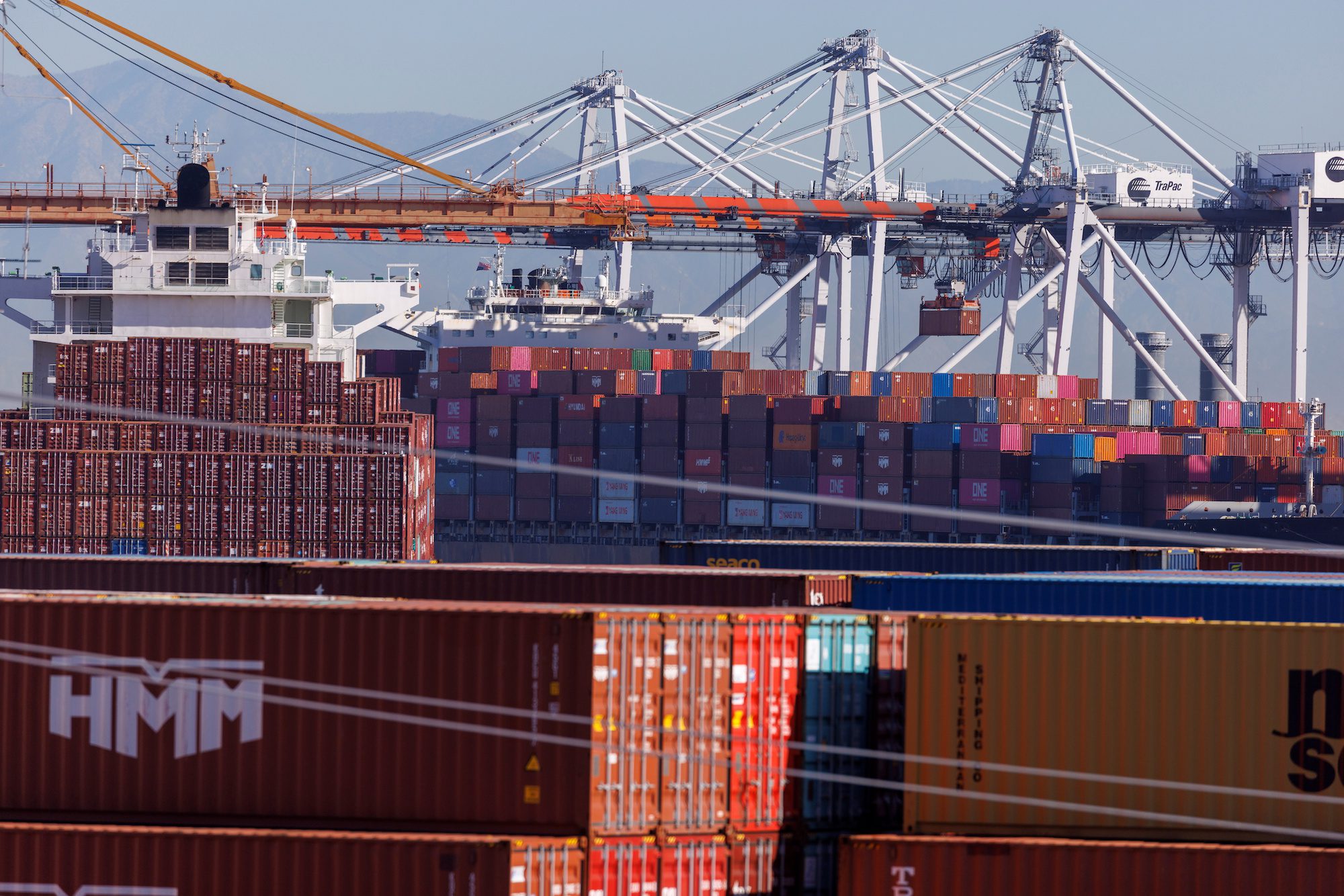By Jack Wittels
Apr 7, 2025 (Bloomberg) –Governments from across the world are gathering in London this week to thrash out a landmark global carbon charge for the shipping industry.
There’s been quiet optimism among those following the talks that, despite recent US silence about potential new rules, Washington won’t derail the process. Still, with the Trump administration announcing the country’s withdrawal from the Paris climate agreement on day one of his return to the White House, there’s an open question about how the country will act as delegates work to forge new, global rules to eliminate greenhouse gas emissions.
Precisely what the regulations will be is yet to be finalized, but the official aim is to force shipping to get to net zero by mid-century — a pre-existing target of the International Maritime Organization, the industry’s global regulator, which is hosting the meeting.
Today, the industry, which was not directly part of the 2015 Paris agreement on climate change, runs almost exclusively on fossil fuels and pumps millions of tons of greenhouse gas emissions into the atmosphere each day.
“It’s huge,” Jan Dieleman, the president of Cargill Inc.’s ocean transportation business, said of this week’s meeting. Shipping’s come from being “excluded under Paris because it was hard to abate, to potentially one of the industries that actually has a credible pathway — from a regulatory point of view — to get to net zero.”
Back in 2023, the IMO said it would come up with rules to hit its climate goals, comprising both a “technical element” and an “economic element.”
Since then there have been multiple meetings. Proposals have included an emissions pricing mechanism and discussed a greenhouse gas fuel intensity target.
US Stance
While the US has significant diplomatic influence, its authority at the IMO has limits. Its merchant fleet is relatively small, and the inherently global nature of shipping means that it’s hard for any one country to upend international regulation.
The US has previously been aligned with other countries on various aspects of potential IMO regulations, according to Jesse Fahnestock, director of decarbonisation at the Global Maritime Forum, a nonprofit with partners including BP Plc.
“If the US does not agree with the measures, this probably means that countries like China, Brazil, UAE, Argentina etc. did not agree either,” he said. “Then no consensus would be possible.”
“In the unlikely event of no consensus, a package could be forced through with a vote — and if the result ends up being something these countries cannot support, you could see multiple countries jumping off MARPOL Annex VI,” he added, referring to the main international treaty on preventing air pollution from ships.
The IMO said it was unable to speak for, or about, an individual member state. The US State Department declined to comment.
Binding Measures
While the US has ratified MARPOL Annex VI, a country can withdraw from the full convention, or any of the optional annexes, according to Tore Longva, decarbonization director at ship classification society DNV.
Ultimately, though, the US is just one country within the negotiations, and there’s optimism an agreement will be reached.
“These would be the first set of binding measures for an entire global industry to shift to zero/low-carbon fuels and energy sources, on the basis of mandatory emission targets,” said IMO Secretary General Arsenio Dominguez. “The measures are more than climate aspirations – they will become mandatory for ships operating globally.”
See also: How Oil-Guzzling Shipping Is Trying to Clean Up: QuickTake
© 2025 Bloomberg L.P.

 Join The Club
Join The Club











